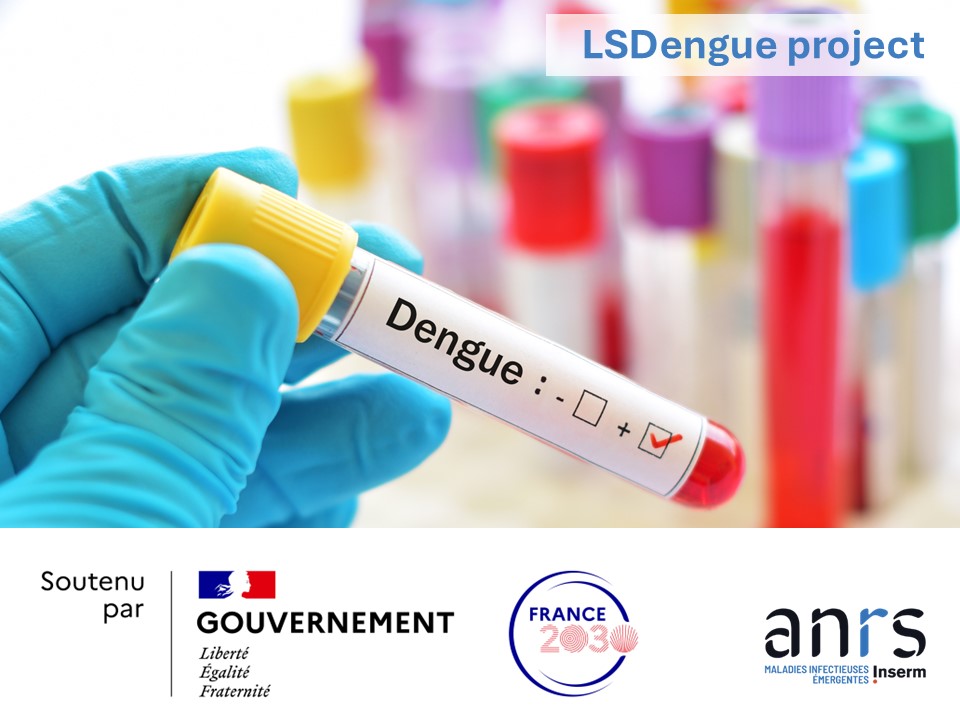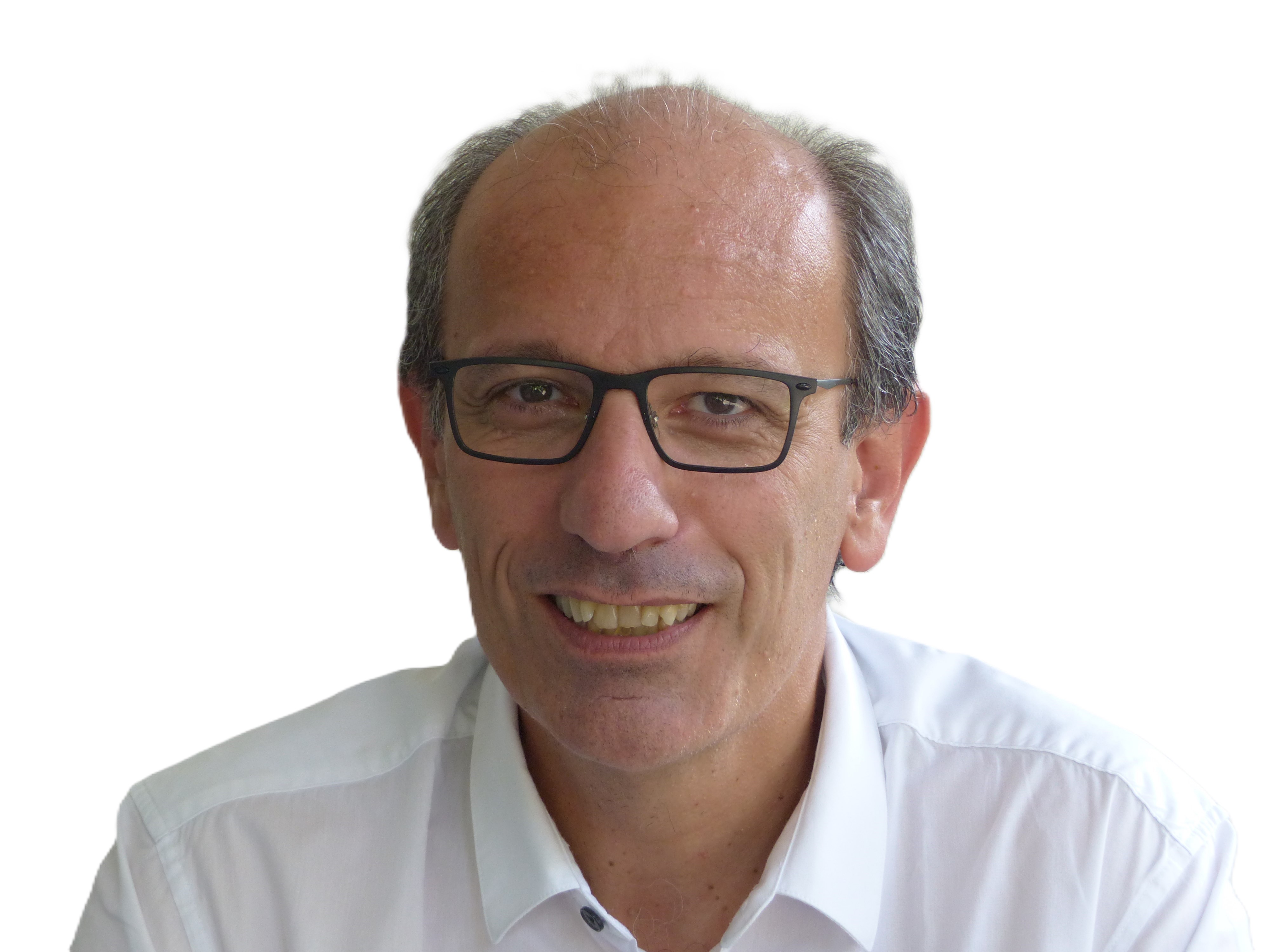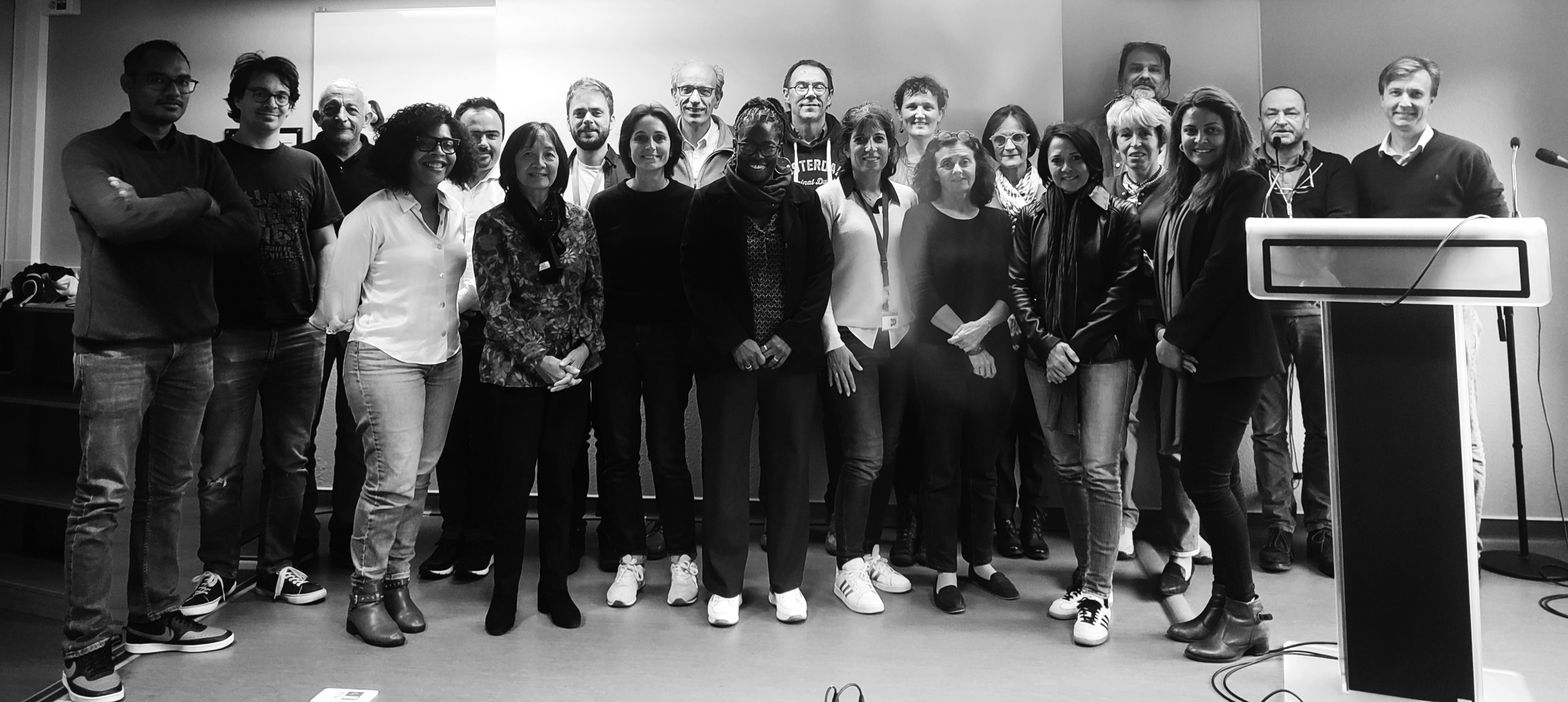
LSDengue project
Determinants of severe dengue fever in the French overseas territories
Last updated on 03 November 2025
LSDengue is a cross-territorial project on an unprecedented scale, with the aim of identifying new prognostic biomarkers for severe forms of dengue fever.
In brief
Principal investigator
Prof. André Cabié
Pathology
Severe dengue
Funding
Emerging Infectious Diseases Priority Research Programme and Equipment (PEPR)- 2023
Sponsorpship
Martinique University Hospital
Teams
NACHER Mathieu (CH Cayenne), DE LAMBALLERIE Xavier (INSERM Marseille), ROUSSET Dominique (Institut Pasteur Guyane), DUPONT-ROUZEYROL Myrielle (Institut Pasteur Nouvelle-Calédonie), MISSÉ Dorothée (IRD), QUINTANA-MURCI Lluis (Institut Pasteur Paris),
MAVINGUI Patrick (Université de La Réunion), GÉRARDIN Patrick (CHU de La Réunion), JAFFAR-BANDJEE Marie-Christine (CHU de La Réunion), CÉSAIRE Raymond (CHU de Guadeloupe), ABEL Laurent (INSERM Paris 5), FOLLENFANT Emilie (CHT Gaston-Bourret, Nouméa)
LSDengue project
Background
Listed among the ANRS MIE priority viruses, the dengue virus (DENV) represents a real public health threat on a global scale. The geographical distribution of the overseas territories (Americas, Indian Ocean, Oceania) offers France an exceptional situation for monitoring and studying DENV in its global diversity.
LSDengue: studying the determinants of severe dengue fever
Coordinated by Professor André Cabié of the Martinique University Hospital, the LSDengue consortium is made up of French medical and scientific teams from Guadeloupe, Martinique, French Guiana, Réunion, French Polynesia, New Caledonia and mainland France. The project is based on the CARBO cohort, a hospital-based cohort of suspected and confirmed cases of arbovirosis in mainland France and its overseas territories.
This large-scale study is based on the collection and analysis of clinical, genetic, virological and immunological data from hundreds of patients with diverse medical histories and genetic backgrounds, recruited from a large part of the geographical range of DENV. The data collected as part of this project will make it possible to study the role of host- and virus-related factors in the clinical course of dengue fever, thereby providing a systemic view of the determinants of severe forms of the disease.
To study the determinants of severe dengue, LSDengue is relying on the CARBO cohort, which includes children and adults attending hospitals in mainland France and the French overseas territories. It will enable the collection and standardisation of clinical, genetic, virological and immunological data on confirmed cases of dengue fever from all French territories. To encourage the integration of patient data into a shared database and to facilitate the exchange of biological resources between sites, an inter-territorial network for sharing samples and data linking the French overseas territories will be set up.
Using the data collected as part of this project, the associations between host- and virus-related factors and clinical outcomes can be studied in order to build multivariate models and obtain a systemic view of the determinants of severe dengue:
- genetic and phylogenetic study of the viral determinants of severe dengue fever,
- identification of viral biomarkers of the severity of severe dengue (NS1 protein, immune response monitoring and deciphering of previous flavivirus infections),
- identification of genetic factors for variation in the innate antiviral immune response during severe dengue fever,
- search for rare and common genetic variants in severe dengue fever,
- characterisation of the association between lipid metabolism and severe dengue fever,
- and the search for autoantibodies against type I IFNs in severe dengue fever.
A central focus of this analysis will be to identify factors that can be readily applied as biomarkers to optimise patient management, either alone or as part of an integrated model.

We hope that the resources and structure established under LSDengue will go beyond this and provide a solid basis for preparing for and controlling emerging viruses, particularly arboviruses, in France
The impact of the LSDengue project
- The identification of factors predictive of severe dengue fever, which will make it possible to improve patient management.
- Improving the surveillance system through better knowledge of severe cases of dengue fever and improved virus sequencing.
- Acquiring new knowledge about the mechanisms involved in the development of severe forms of dengue fever and identifying new molecular targets for the development of drugs and/or vaccines.
- Structuring an initial inter-territorial network for sharing samples and data, bringing together most of France’s overseas territories and covering a large part of the circulation area of many medically important arboviruses.
- And finally, more generally, the long-term structuring of a network for the preparation and control of emerging viruses – in particular arboviruses – in France.
Other LSDengue-related projects
Closely linked to the LSDengue project, ARBOGEN, funded by MSDavenir, aims to identify the genetic determinants of DENV involved in the severity of dengue fever.
The Antilles Data Hub (AnDH) project aims to consolidate the Martinique University Hospital’s clinical data repository and build the Guadeloupe University Hospital’s clinical data repository, with joint scientific projects and the pooling of skills. One of these scientific projects aims to describe the clinical features of severe dengue fever and to identify the risk factors for severe dengue fever. Funding for this project was obtained under the bpifrance call for proposals for hospital clinical data warehouses.
LSDengue Arbogen website
